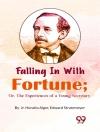In ‘Olla Podrida, ‘ Frederick Marryat crafts a vivid tapestry of tales that encapsulate the essence of British society in the early 19th century. Through a series of interconnected narratives, Marryat employs a rich, humorous, and satirical style, reminiscent of the literary realism of his contemporaries. The work borrows from the tradition of episodic storytelling, merging adventure, social commentary, and personal anecdotes, which collectively reflect on the complexities of human experience. Marryat’s keen observations provide a lens into the diverse fabric of life during a transformative period in British history, illustrating both the charms and follies of his characters with equal deftness. Frederick Marryat, a naval officer turned author, drew upon his extensive maritime experiences and his keen interest in the social issues of his time, which undoubtedly influenced the multifaceted characters and plots within ‘Olla Podrida.’ His previous literary successes, including sea novels that painted the naval life with authenticity, inform his narrative style in this work. Marryat’s personal encounters with diverse cultures and people allow him to imbue each story with depth and relatability, creating a rich backdrop for his compelling characters. Readers who appreciate satirical storytelling and keen social insights will find ‘Olla Podrida’ a rewarding exploration of humanity with layers of humor and wisdom. Marryat’s skillful interweaving of seemingly disparate tales into a cohesive work invites readers to reflect on their own societal experiences, making this book not just an enjoyable read but also a meaningful commentary on life’s myriad complexities.
Over de auteur
Captain Frederick Marryat (1792–1848) was a notable figure in the literary arena of the 19th century, esteemed for both his naval career and his prolific writing. An officer in the British Royal Navy, Marryat’s experiences at sea lent authenticity and vibrancy to his subsequent novels. After resigning from the Navy in 1830, he delved wholeheartedly into literature, emerging as a pioneer in the sea fiction genre. His oeuvre includes ‘Peter Simple’ (1834) and ‘Mr. Midshipman Easy’ (1836), works that resonate with his intimate knowledge of maritime life, often using wit and satire to critique the society of his times. His literary style is characterized by a blend of adventure narrative with a comedic touch, an approach that has influenced later nautical fiction writers. ‘Olla Podrida’ (1840), while lesser-known, showcases Marryat’s versatility as an author, diverging from his nautical themes to offer a collection of varied writings, including essays, stories, and sketches, reflecting his keen observation and commentary on life and culture. Marryat was highly regarded by his contemporaries, and his influence extended to writers like Joseph Conrad and Ernest Hemingway, who appreciated his realistic portrayal of seafaring adventures. Today, Marryat’s legacy persists as a cornerstone of nautical fiction, granting readers a glimpse into the maritime world of the early 19th century through the engaging lens of narrative fiction.












